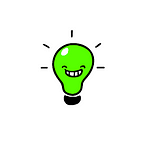How To Differentiate From Similar Projects And Ideas
It’s a common experience for first time inventors and creators of a new product: you think up something brilliant, go to work on it, and are excited to show it to the world when all of a sudden… someone else has the very same idea.
While it can be tempting to think that your idea is the very first of its kind, the truth is that often times it isn’t. The devil, as they say, is in the details — in this case, the details of executing on the idea, and actually creating a product or company around it.
But it’s not just about the literal idea itself, it’s also about how you present it. Whether it’s your first go at crowdfunding a product, raising money from an angel investor, or getting a small business grant or loan, one of the key factors is in differentiating your idea from other ones out there that might look like it on the surface.
Differentiation is vital, and it’s all about showcasing your idea as unique, important, and something that people already need or want.
Let’s look at some of the basics…
Great Marketing Favors Mind Over Product
William Mougayar, who worked at HP for many years and is now a prominent angel investor, describes just how important mindshare really is to startups and early stage businesses…
“As a new company, if your mindshare isn’t at least 100X your market share, you are leaving a lot of your valuation premium potential on the table. This means that for every new user you get, there would be 100 other potential users that have heard about you, but not tried you yet.
I call this the “top restaurants” test. Ask yourself to name the top restaurants in your city, and I can guarantee you will name more restaurants than ones you have been to, just because you have heard of them. The ones you haven’t been to yet are probably “on your mind”, and you are constantly thinking about going there one day. For those restaurants, their marketing job was well done, because, via some awareness magic, they were able to become noticed by you, and they lodged themselves inside your mind, triggering constant thoughts like: “I’ve got to try this restaurant soon.”
How exactly do you get to that magic moment of the top restaurants test? A big part of the challenge is to keep evolving your narrative and product description as you go along. The absolute best way to make sure you’re doing this is to keep a constant feedback loop with your customers or potential customers. If you listen to them and learn to ask questions big and small (sometimes an interview / conversation, sometimes a survey, sometimes just watching their behavior or experience w/your product) you’ll get information about how your product is unique, and how they think about it in ways they don’t think about other products out there.
Which leads to another important point…
Let Your Customers Drive The Differentiation
A popular tactic that shows up both in startups and in experienced marketers is the testimonial.
But it’s not just about getting a rave review — as Groove CEO and Founder Alex M. Turnbull points out, it’s the specific details that are important, like this one that they received from a satisfied customer:
If you were closely reading the previous section, you probably already caught the differentiation. The customer actually provided the difference between Groove and bigger, more unwieldy competitors. Groove (a simple, online based helpdesk software) acts as an easy way to wrap around the relationship they already had with their customers, instead of forcing them to complicate the relationship with too many extra details.
And you don’t necessarily need a fully finished product to get a testimonial or customer feedback — you can start getting that as soon as you have a prototype, or a way to test if people want what you are building. Great customer or tester feedback will always help you get to the heart of what makes an idea different, and many times it’s not what you originally thought.
So, if someone else also thought of your great idea, don’t panic, and don’t give up the ship. With the right messaging and sales pitch you can differentiate your idea and still find success.
